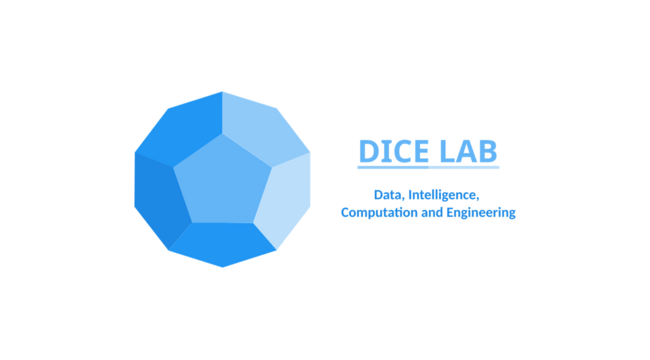O DICE Lab, criado recentemente, é um Laboratório do Instituto Politécnico de Setúbal (IPS) e unidade de gestão de I&DT do Centro ALGORITMI, Universidade do Minho, associado ao grupo de investigação Computer Communications and Pervasive Media (CCPM). O DICE Lab tem como missão promover o avanço do conhecimento nas áreas emergentes das tecnologias da informação, da comunicação e da engenharia, com foco nos desafios do mundo real, contribuindo para a transferência de conhecimento para a sociedade, e a comunidade científica em geral.
The DICE Lab, recently developed, is a laboratory of the Setubal Polytechnic University and a R&D management unit of the Centro ALGORITMI, University of Minho, associated with the Computer Communications and Pervasive Media (CCPM) research group. DICE Labs aims to promote the advancement of knowledge in emerging areas of information, communication, and engineering technologies, with a focus on real-world challenges, contributing to the transfer of knowledge to society and the scientific community in general.
Enquanto unidade de investigação que desenvolve a sua atividade no domínio das TIC, o DICE Lab identifica-se, mas não se limita, às áreas/linhas de investigação abaixo indicadas:
As a research unit that develops its activity in the field of ICT, the DICE Lab is identified, but not limited to the areas / lines of research listed below:
- Artificial Intelligence
- Pattern Recognition
- Machine (Deep) Learning
- Computer Vision
- Natural Language Processing
- Generative AI
- Data Science
- Exploratory Data Analysis
- Big Data Analytics
- Information Visualization
- Business Intelligence
- Data Engineering
- Business Process Automation
- Software Engineering & Process Modelling
- Internet of Things
- Smart Cities
- 5G / 6G
- Edge computing
- Semantic technologies
- Spatial Computing
- Virtual Reality
- Augmented Reality
- Extended Reality
- Avatars
- Digital Twins
- Process Simulation
- Operations Research
- Linear and Integer Programming
- Multi-objective/multicriteria optimization
- Decision Analysis
